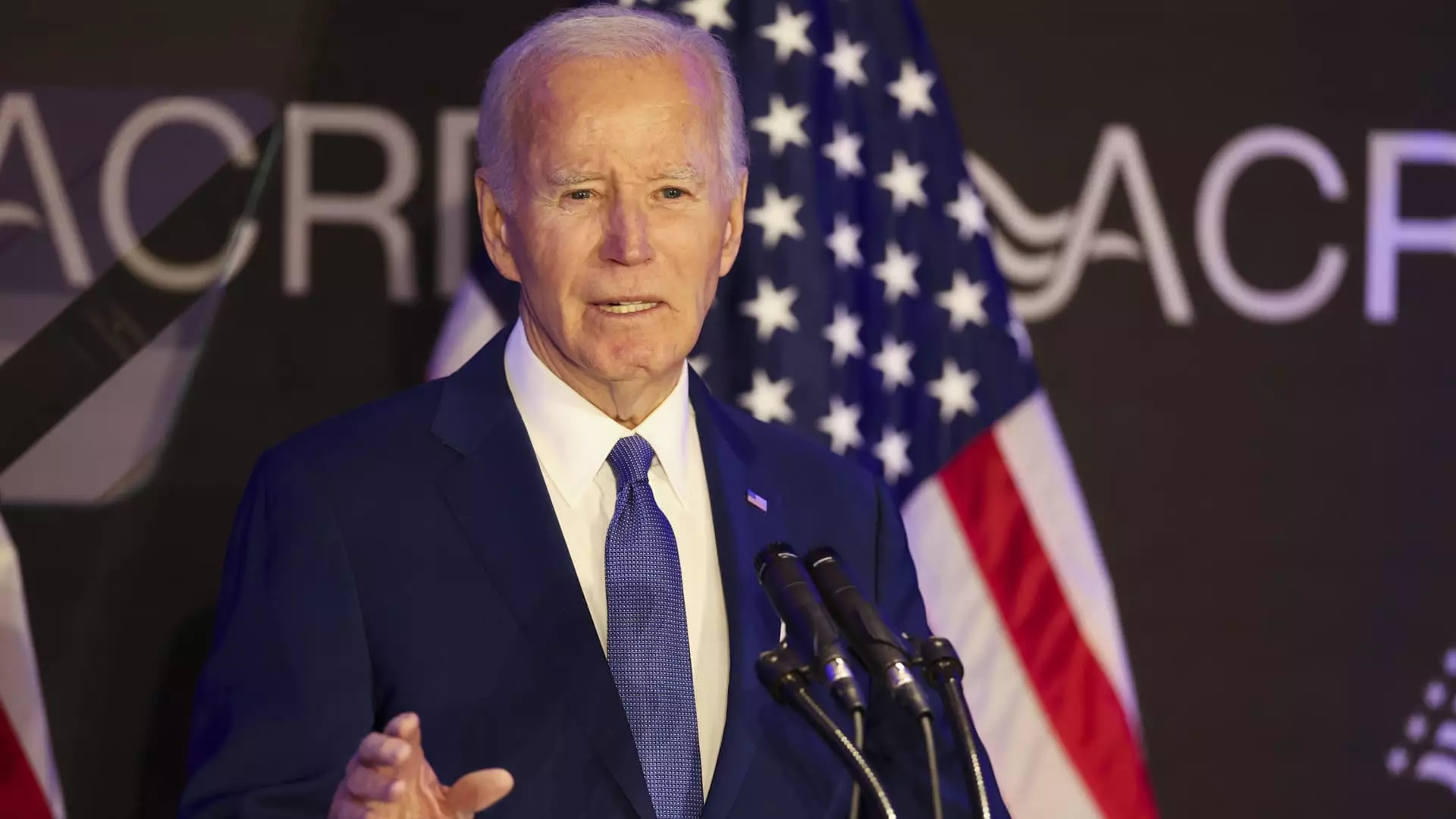The political landscape has recently been shaken by the alarming news of President Joe Biden’s prostate cancer diagnosis. His office publicly acknowledged a diagnosis that came on the heels of alarming urinary symptoms and the discovery of a prostate nodule. While the medical details could easily slip into jargon-filled obscurity, the essence is painfully clear: Biden has been diagnosed with an aggressive form of cancer that has metastasized, reaching his bones. This unfortunate development not only places a personal burden on the President and his family but also reverberates through a nation already concerned about his health and leadership capabilities.
What makes this cancer particularly worrisome is the Gleason score of 9, which categorizes it as one of the most aggressive forms of prostate cancer. Warriors in healthcare know that when cancer ventures beyond its original site, it becomes a formidable adversary, often complicating treatment. Prostate cancer typically metastasizes to bones, creating a challenging scenario for therapy as the body fights to manage multiple cancerous growths dispersed in various locales. Yet, amid this daunting diagnosis, there exists a sliver of optimism; his specific type of cancer is hormone-sensitive, hinting at the possibility of effective therapeutic strategies that could help manage the illness.
Political Ramifications and Cross-Party Sentiments
What stands out prominently in this political drama is the unexpected sympathy that flows from the most unlikely corners. Political rivalries are fierce and often unforgiving, yet former President Donald Trump extended a message of goodwill, expressing a sentiment of wishing Biden a rapid and successful recovery. This gesture, whether driven by authenticity or political theatrics, underscores a moment where humanity surpasses partisanship. Furthermore, Vice President Kamala Harris joined the chorus of support, affirming her belief in Biden’s fighting spirit during this tumultuous time.
Such sentiments serve as a reminder that beneath the tempest of political affiliations lies a human being grappling with a life-altering circumstance. While political divides can easily overshadow the basic human experiences we all share, moments like these have the potential to bridge those chasms, if only temporarily. However, the question looms: how will this diagnosis influence Biden’s capacity to perform his duties as President and serve the nation effectively during such a fraught time?
A Concern for Leadership and Competence
Biden’s health has been under scrutiny from the very moment he took office, particularly given his age. The erosion of public trust due to concerns about his age reached a peak after a disastrous debate performance, leading many to speculate about his viability for a second term. The sheer brutality of the political arena leaves no room for empathy, and Biden’s recent diagnosis injects yet another level of complexity into an already fraught scenario.
For many voters, a President’s health is viewed not just through a personal lens but essentially as a reflection of national stability. A cognizant electorate grapples with the implications of leadership challenged by serious health concerns, and here lies one of Biden’s most significant hurdles. This evolving narrative related to his health, juxtaposed against the backdrop of political aspirations and expectations, creates an uncomfortable atmosphere where Americans are forced to reconcile personal empathy with the hard-edged realities of governance.
A Legacy Intertwined with Cancer Awareness
Biden’s connection with cancer runs deeper than this recent diagnosis; it’s profoundly personal, rooted in the loss of his son Beau to brain cancer in 2015. His administration’s initiative aimed at halving cancer death rates over the next quarter-century emerges as a testament to his commitment to fighting this scourge. This “cancer moonshot” campaign serves as both a homage to his son and a crucial part of Biden’s broader public health agenda.
Ironically, amid the very real threat to his life and leadership, this personal battle could catalyze a renewed focus on cancer awareness and healthcare reform. Biden’s cancer journey risks becoming a focal point in discussions around health unification and access, emphasizing the desperate need for a holistic approach to cancer treatment that goes beyond partisan lines.
Ultimately, while Biden’s health concerns may invoke uncertainty within the political sphere, they reinforce the urgency of addressing cancer as a societal issue. His current battle may yet inspire renewed vigor in efforts toward healthcare reform, providing a silver lining in an otherwise stark narrative.

